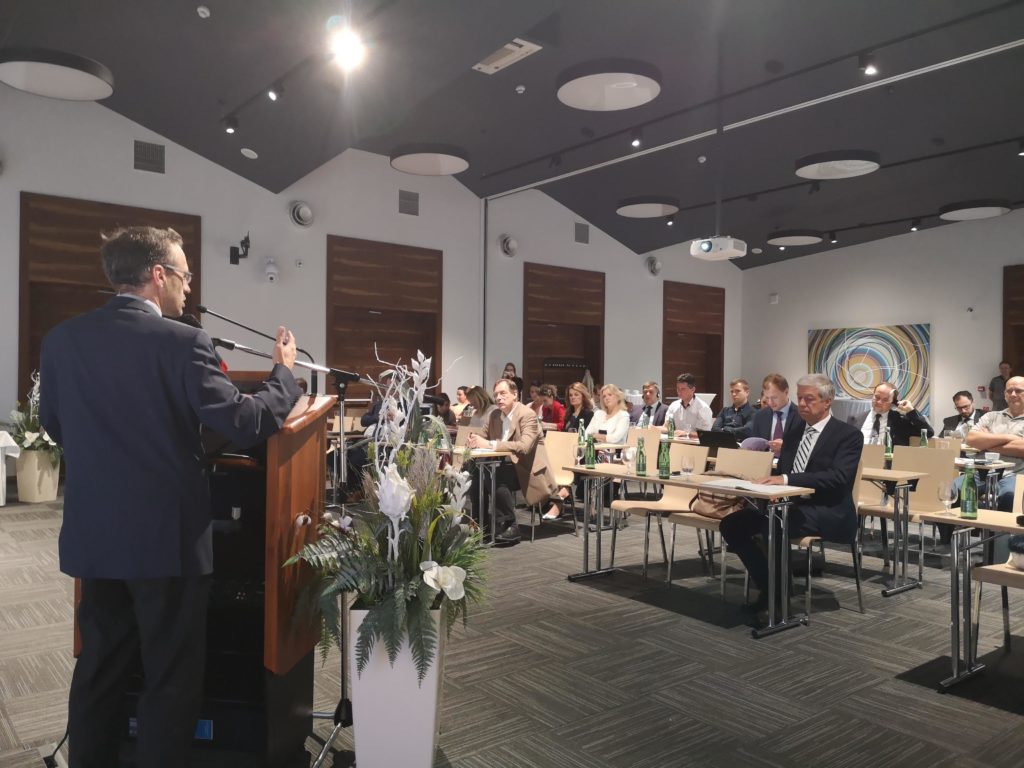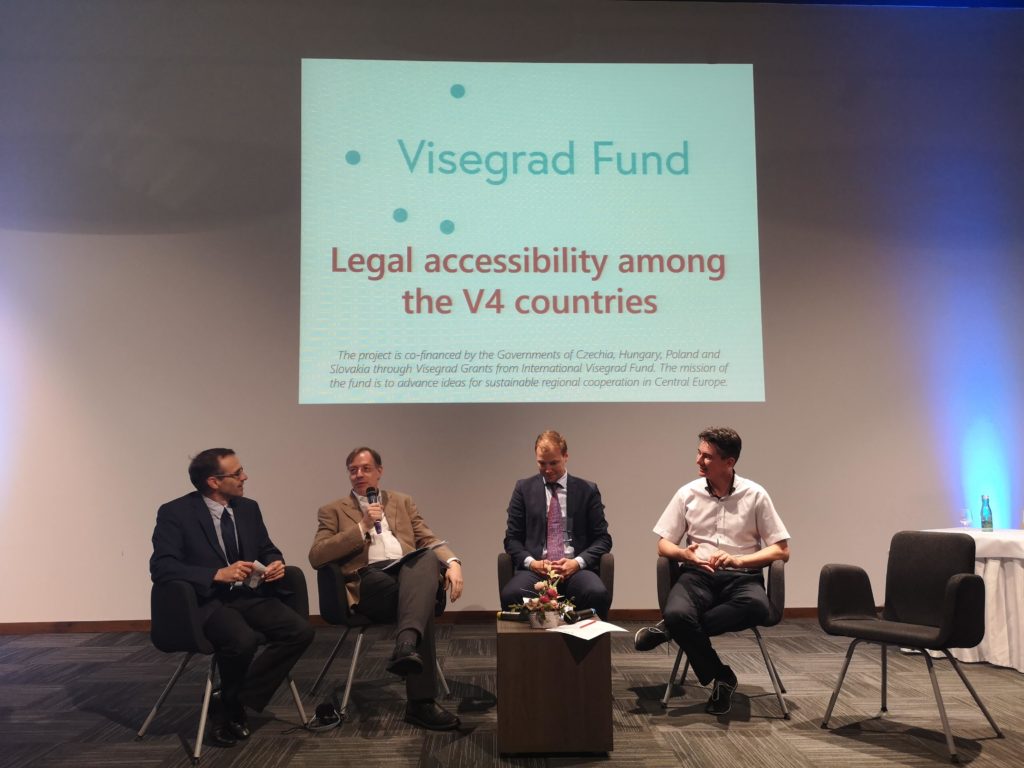On 20 June 2019 the Central European Service for Cross-border Initiatives (CESCI) together with CESCI Carpathia organized the closing conference of the project on legal accessibility among the Visegrad countries in Košice. The conference was attended by representatives of local and regional authorities, EGTCs and NGOs from the V4 and the neighbouring countries.
The main goal of the project funded by the International Visegrad Fund was to elaborate a Visegrad Four level mechanism designed to eliminate cross-border obstacles and to enhance cooperation. Within the framework of the project, Hungarian, Slovak, Czech and Polish partners developed the frames for a mobility platform following the model of the Nordic Council’s Freedom of Movement Council.

The conference was opened by Ms Katarína Mihaľová, Director of cross-border programmes at the Ministry of Agriculture and Rural Development of the Slovak Republic and Andor F. Dávid, executive director of the International Visegrad Fund who emphasized the significance of cross-border mobility within the V4 region as a result of the increased internal cohesion and interconnectivity. Then Gyula Ocskay, Secretary General of the CESCI, as lead partner of the project greeted the participants on behalf of the project consortium formed by the University of Szeged, the CESCI Carpathia, the Masaryk University of Brno and the EUROREG Institute of the University of Warsaw. He emphasized the timeliness of the legal accessibility issues by mentioning certain examples from the SK-HU border region around Bratislava.
The first session moderated by Rudolf Bauer, director of CESCI Carpathia was dedicated to the legal accessibility initiatives on European level. Dirk Peters, senior expert of the DG Regio introduced the European Union’s cross-border “three-staged rocket”, i.e. the cross-border tool-kit including the INTERREG (financing), the EGTC (governance) and the European Cross-border Mechanism as a new legal instrument designed to eliminate administrative obstacles in the border areas. Ádám Karácsony, member of the Hungarian delegation to the Committee of the Regions, rapporteur of the EU Communication Boosting Growth and Cohesion in EU Border Regions presented the position of European regional and local authorities regarding the permanently broadening set of EU level instruments facilitating cross-border cooperation. He warmly welcomed the progress made during the last few years by mentioning successful examples from the ground. Petri Suopanki, senior adviser of the Nordic Council of Ministers introduced the model of the Nordic States pointing out its results in the field of obstacle management. At the end he touched upon the establishment process of the Nordic structure highlighting that it had required decades to achieve such a level of integration and institutionalisation that they currently have and the same should be expected in the V4 region.
After the coffee break, Gyula Ocskay, secretary general of CESCI presented the work which has been done so far within the framework of the V4 project and gave an insight into the next steps planned to be made both on Visegrad and national level. He highlighted that the most important task of the V4 project partnership to be delivered by the end of July is to channel the results of the joint work to the political discourse at the level of the V4 governments.

The presentation was followed by a round table discussion with the participation of Dirk Peters, Petri Soupanki and Péter Nagy, director of the Ister Granum EGTC. Gyula Ocskay asked the speakers about their personal and job-related experiences relevant in terms of obstacle management. Several examples, such as problems with fire-fighters crossing the border, taxation difficulties in case of cross-border labour mobility and cross-border public procurement issues were mentioned which brightly illustrated the practical aspects of the topic. Finally, the speakers were asked about their opinion on the future of obstacle management. Dirk Peters reported on the European level progresses which do not reflect the best-case scenario, however, he is optimistic about the future of the ECBM regulation. Péter Nagy emphasised the importance of mutual tolerance when approaching those obstacles hindering cross-border cooperation.
Further information on the project is available on the project website. For reading the details of the proposal in the V4 obstacle management procedure, please refer to this study.
